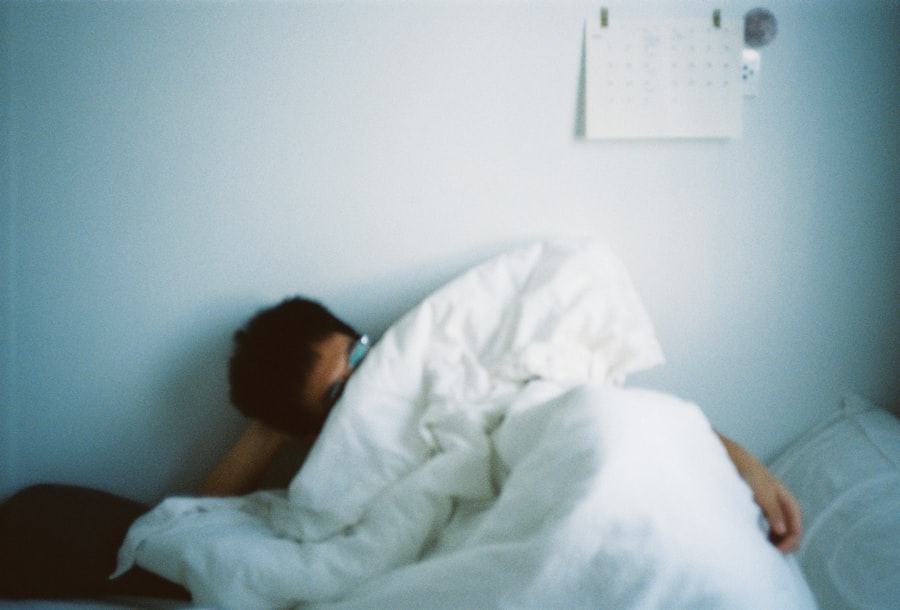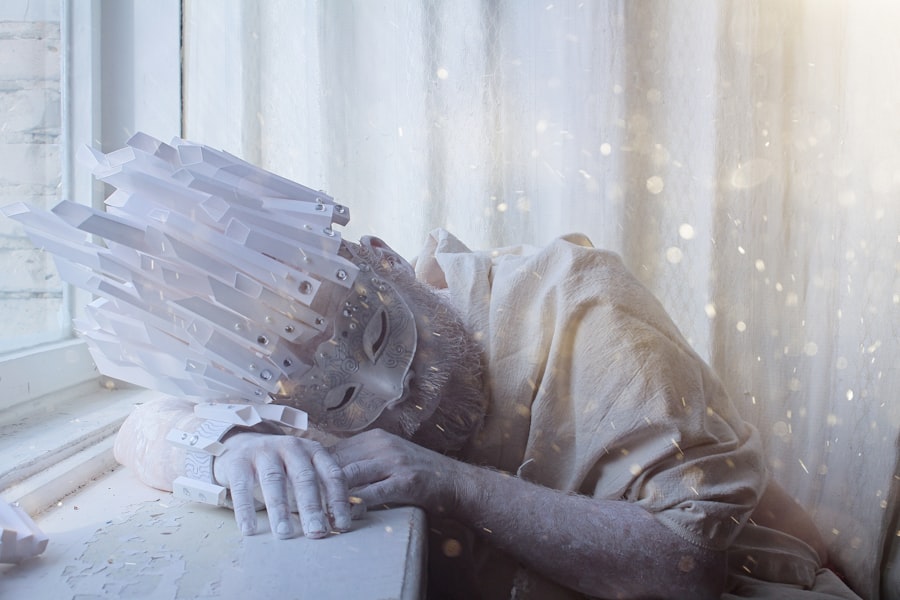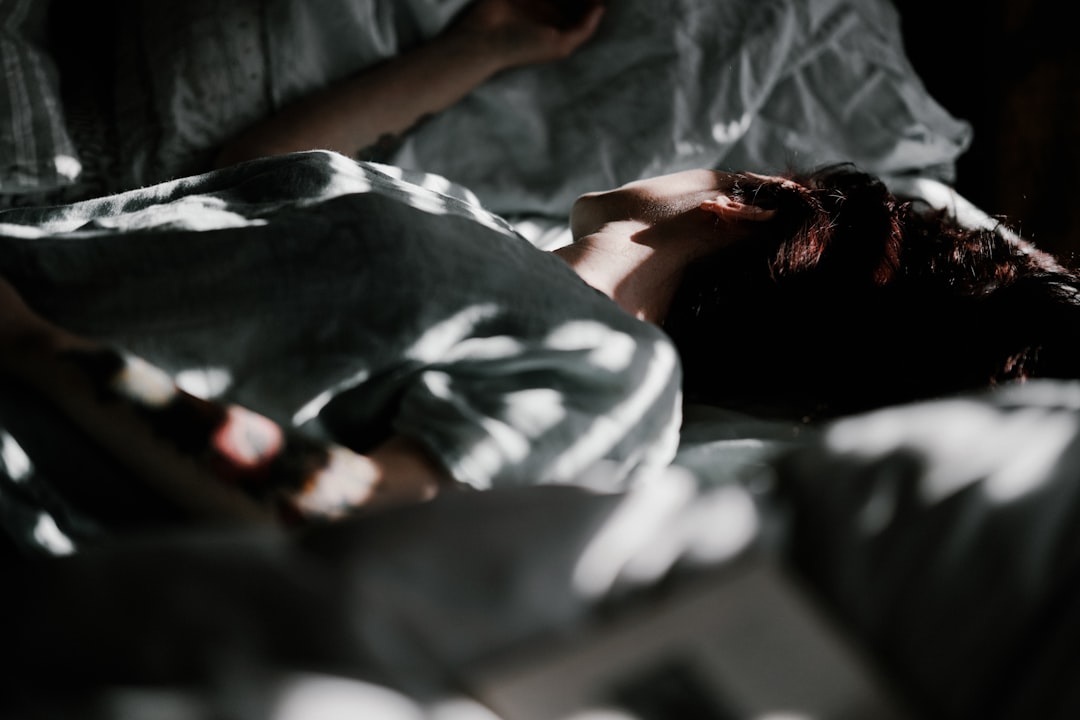You may have heard of sleep paralysis, a phenomenon that can be both terrifying and bewildering.
This experience can be accompanied by vivid hallucinations, often leading to feelings of dread and helplessness.
Sleep paralysis occurs when you find yourself in a state between wakefulness and sleep, where your mind is alert, but your body remains in a state of temporary paralysis. This unsettling experience has been documented across cultures and throughout history, often interpreted through various lenses, from medical to supernatural. As you delve deeper into the world of sleep paralysis, you may discover that it is not merely a modern phenomenon but has roots in ancient folklore and mythology.
Many cultures have their own interpretations of this experience, often attributing it to malevolent spirits or supernatural entities. Understanding sleep paralysis requires a multifaceted approach that encompasses both scientific inquiry and cultural perspectives. By exploring the intricacies of this phenomenon, you can gain insight into the complex interplay between the mind, body, and cultural beliefs that shape our understanding of sleep and its disturbances.
Key Takeaways
- Sleep paralysis is a phenomenon in which a person is temporarily unable to move or speak while falling asleep or waking up.
- The brain’s transition between different stages of sleep, particularly REM sleep, plays a key role in the occurrence of sleep paralysis.
- Cultural and religious beliefs can influence the perception of sleep paralysis, often leading to the interpretation of demonic presence.
- Scientific explanations for hallucinations during sleep paralysis include the activation of the amygdala and the disruption of the boundary between dreaming and wakefulness.
- Stress and anxiety can contribute to the frequency and intensity of sleep paralysis episodes, often leading to the perception of demonic presence.
Understanding the Brain and Sleep Paralysis
To comprehend sleep paralysis fully, it is essential to understand how your brain functions during sleep. Your brain cycles through various stages of sleep, each playing a crucial role in your overall health and well-being. During these cycles, particularly during rapid eye movement (REM) sleep, your brain becomes highly active while your body remains in a state of atonia, or temporary paralysis.
This mechanism is designed to prevent you from acting out your dreams, ensuring that you remain safe while you slumber. When you experience sleep paralysis, it is often during the transition between wakefulness and REM sleep. Your brain may awaken before your body has fully transitioned out of this paralyzed state, leaving you trapped in a liminal space where you can see and hear but cannot move.
This disconnection can lead to feelings of panic and confusion as you struggle to regain control over your body. Understanding this neurological basis can help demystify the experience and provide a framework for addressing the fear and anxiety that often accompany sleep paralysis.
The Role of REM Sleep in Sleep Paralysis

Rapid eye movement (REM) sleep plays a pivotal role in the occurrence of sleep paralysis. During REM sleep, your brain is highly active, engaging in processes that are vital for memory consolidation and emotional regulation. However, this heightened brain activity is coupled with muscle atonia, which prevents you from physically acting out your dreams.
When this delicate balance is disrupted, it can lead to the unsettling experience of sleep paralysis. You may find it fascinating that REM sleep is not only essential for dreaming but also for maintaining mental health. Disruptions in REM sleep can lead to various psychological issues, including anxiety and depression.
When you experience sleep paralysis, it may serve as a signal that your sleep patterns are being disturbed. By recognizing the importance of REM sleep in this context, you can better appreciate how vital it is to maintain healthy sleep habits to minimize the risk of experiencing sleep paralysis.
The Connection Between Sleep Paralysis and Demons
| Study | Findings |
|---|---|
| Research Study 1 | Found a correlation between sleep paralysis experiences and belief in supernatural entities |
| Survey Results | 60% of participants reported feeling a presence during sleep paralysis episodes |
| Medical Data | Individuals with sleep paralysis often experience fear and anxiety during episodes |
Throughout history, many cultures have linked sleep paralysis to encounters with demons or malevolent spirits. You might be intrigued to learn that these interpretations often stem from the feelings of helplessness and fear that accompany the experience. In various folklore traditions, individuals have reported being visited by dark figures or entities during episodes of sleep paralysis, leading them to believe they were under attack by supernatural forces.
This connection between sleep paralysis and demons can be traced back to ancient civilizations, where people sought explanations for their experiences through the lens of spirituality and mythology. In some cultures, these entities were thought to be responsible for causing nightmares or even stealing one’s soul during the night. By examining these beliefs, you can gain insight into how fear and cultural narratives shape our understanding of experiences that are otherwise difficult to explain.
The Influence of Cultural and Religious Beliefs on Sleep Paralysis Demons
Cultural and religious beliefs play a significant role in shaping how individuals interpret their experiences with sleep paralysis. You may find it interesting that different cultures have distinct narratives surrounding these episodes, often reflecting their unique worldviews and spiritual beliefs. For instance, in some cultures, sleep paralysis is seen as a form of spiritual attack or possession, while others may interpret it as a sign of impending misfortune.
These varying interpretations can influence how individuals respond to their experiences with sleep paralysis. In cultures where demons are believed to be involved, individuals may feel compelled to seek spiritual guidance or perform rituals to ward off these entities. Conversely, in more scientifically oriented societies, people may turn to medical professionals for explanations and treatment options.
By understanding these cultural contexts, you can appreciate the diverse ways in which people navigate the complexities of sleep paralysis and its associated fears.
Scientific Explanations for Hallucinations During Sleep Paralysis

The hallucinations experienced during sleep paralysis can be both vivid and terrifying. You might wonder why these hallucinations occur and what they signify about your mental state during these episodes. Scientifically speaking, these hallucinations are thought to arise from the brain’s unique state during REM sleep when it is highly active yet disconnected from physical movement.
During an episode of sleep paralysis, your brain may attempt to make sense of the sensory information it receives while you are unable to move or react. This can lead to visual or auditory hallucinations that feel incredibly real. For example, you might see shadowy figures or hear strange noises that contribute to the overall sense of dread.
Understanding these scientific explanations can help demystify the experience and provide reassurance that what you are experiencing is not uncommon or indicative of a deeper psychological issue.
The Role of Stress and Anxiety in Sleep Paralysis Demons
Stress and anxiety are significant factors that can exacerbate the likelihood of experiencing sleep paralysis. You may find that periods of heightened stress in your life correlate with an increase in episodes of sleep paralysis. This connection can be attributed to the impact that stress has on your overall sleep quality and patterns.
When you are under stress, your body produces higher levels of cortisol and other stress hormones that can disrupt your normal sleep cycles. This disruption can lead to fragmented sleep and an increased likelihood of entering REM sleep while still partially awake. As a result, you may find yourself more susceptible to experiencing episodes of sleep paralysis accompanied by vivid hallucinations.
Recognizing this link between stress and sleep paralysis can empower you to take proactive steps toward managing stress levels and improving your overall sleep hygiene.
Genetic and Environmental Factors in Sleep Paralysis
Genetic predisposition may also play a role in your susceptibility to sleep paralysis. Research suggests that individuals with a family history of sleep disorders may be more likely to experience episodes of sleep paralysis themselves. If you have relatives who have reported similar experiences, it could indicate a genetic component at play.
In addition to genetic factors, environmental influences such as lifestyle choices and sleeping conditions can significantly impact your likelihood of experiencing sleep paralysis. Irregular sleeping patterns, excessive screen time before bed, or an uncomfortable sleeping environment can all contribute to disrupted sleep cycles. By addressing these environmental factors and making conscious choices about your sleeping habits, you can reduce the risk of encountering sleep paralysis episodes.
The Impact of Sleep Disorders on Sleep Paralysis Demons
Sleep disorders such as narcolepsy or insomnia can significantly increase the likelihood of experiencing sleep paralysis. If you struggle with any form of sleep disorder, you may find yourself more vulnerable to episodes due to disrupted sleep patterns or irregular REM cycles. Narcolepsy, for instance, is characterized by excessive daytime sleepiness and sudden bouts of REM sleep during waking hours, which can lead to increased occurrences of sleep paralysis.
If you suspect that a sleep disorder may be contributing to your experiences with sleep paralysis, consulting with a healthcare professional specializing in sleep medicine can provide valuable insights into managing both conditions effectively.
Treatment and Management of Sleep Paralysis
While there is no one-size-fits-all solution for managing sleep paralysis, several strategies can help alleviate its frequency and intensity. You might consider adopting healthier sleeping habits as a first step toward prevention. Establishing a consistent bedtime routine, creating a comfortable sleeping environment, and minimizing stress before bed can all contribute to improved sleep quality.
In some cases, cognitive behavioral therapy (CBT) has been shown to be effective in addressing anxiety related to sleep paralysis episodes. By working with a therapist trained in CBT techniques, you can learn coping strategies that help reduce fear and anxiety surrounding these experiences. Additionally, if underlying medical conditions contribute to your episodes, seeking treatment for those conditions may also help mitigate the occurrence of sleep paralysis.
Bridging the Gap Between Science and Supernatural Beliefs
As you reflect on the complexities surrounding sleep paralysis, it becomes clear that this phenomenon exists at the intersection of science and cultural beliefs. While scientific explanations provide valuable insights into the neurological mechanisms behind sleep paralysis, cultural narratives continue to shape how individuals interpret their experiences. By bridging this gap between science and supernatural beliefs, you can cultivate a more nuanced understanding of what it means to experience sleep paralysis.
Ultimately, whether viewed through a scientific lens or interpreted through cultural narratives, the experience of sleep paralysis remains a deeply personal one. By acknowledging both perspectives, you empower yourself to navigate this phenomenon with greater awareness and understanding—transforming fear into knowledge as you explore the intricate relationship between mind, body, and belief systems in shaping our experiences during the night.
Sleep paralysis is a phenomenon that has intrigued scientists and laypeople alike, often leading to vivid and sometimes terrifying experiences commonly referred to as encounters with a “sleep paralysis demon.” The scientific cause of sleep paralysis is typically linked to the disruption of the REM (Rapid Eye Movement) sleep cycle, where the body remains in a state of atonia, or muscle paralysis, while the mind is partially awake. This can lead to hallucinations and a sense of an ominous presence in the room. For those interested in exploring more about the scientific explanations behind such eerie experiences, a related article can be found on Freaky Science’s website. You can read more about it by visiting Freaky Science.
WATCH THIS! 🧠 The Brain Hack That Makes You See Ghosts!
FAQs
What is sleep paralysis?
Sleep paralysis is a temporary inability to move or speak that occurs when waking up or falling asleep. It is often accompanied by a feeling of pressure on the chest and a sense of fear.
What is a sleep paralysis demon?
A sleep paralysis demon is a hallucination or vivid dream that occurs during an episode of sleep paralysis. It is often described as a malevolent or threatening presence in the room.
Is there a scientific cause for sleep paralysis demons?
Yes, sleep paralysis demons are a result of the brain being in a state between wakefulness and REM sleep. During this state, the brain can generate vivid and often frightening hallucinations.
What are some common experiences during sleep paralysis demons?
Common experiences during sleep paralysis demons include feeling a presence in the room, seeing or sensing a figure or entity, and experiencing intense fear or dread.
Can sleep paralysis demons cause harm?
While the experiences during sleep paralysis demons can be frightening, they are not physically harmful. It is important to seek medical advice if you are experiencing frequent episodes of sleep paralysis.
